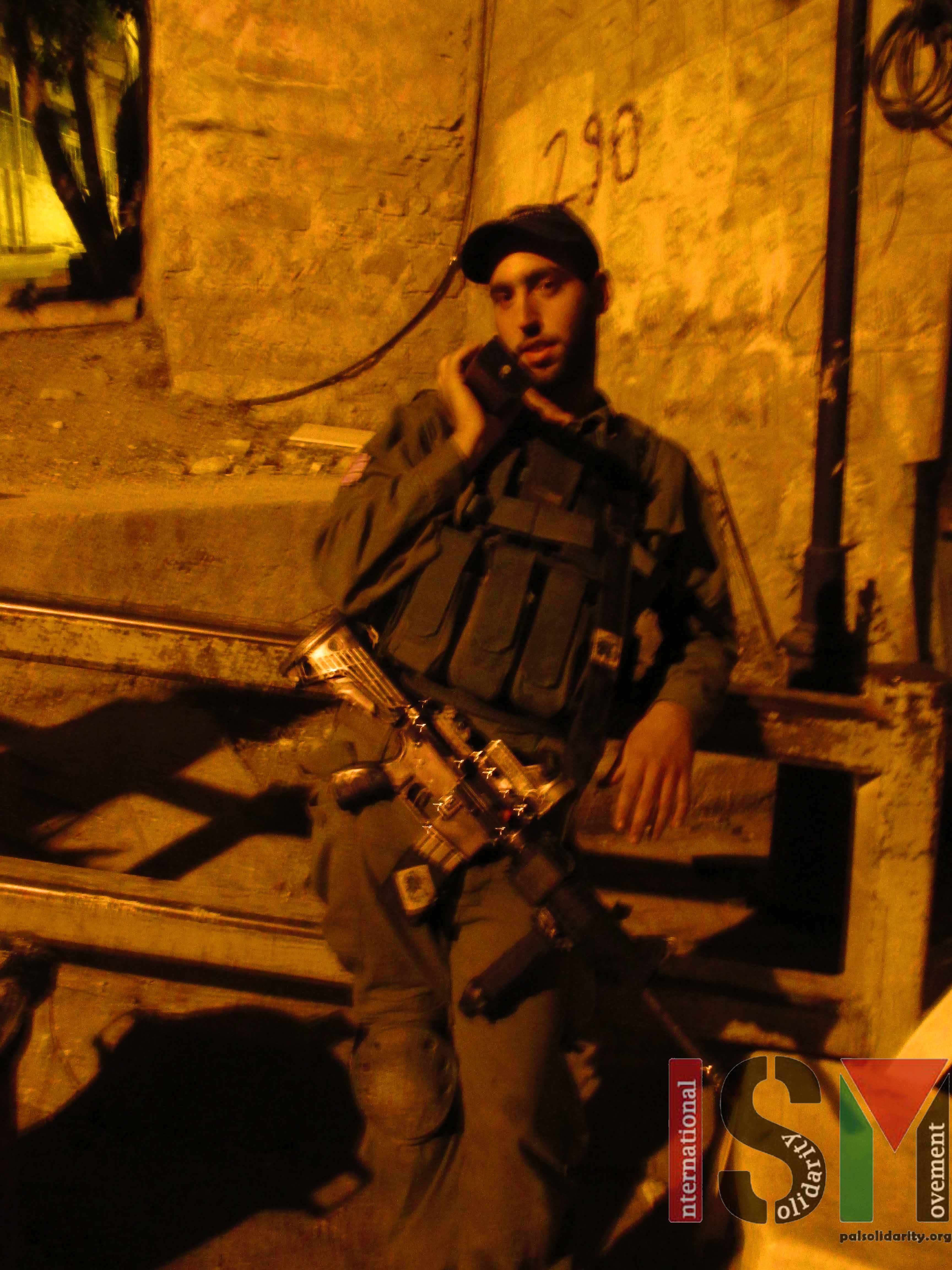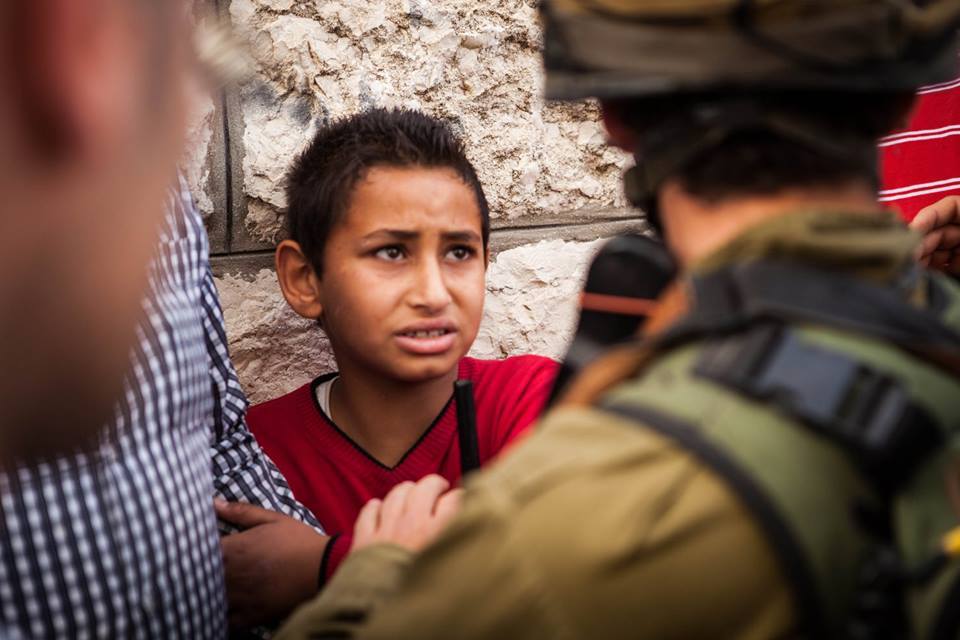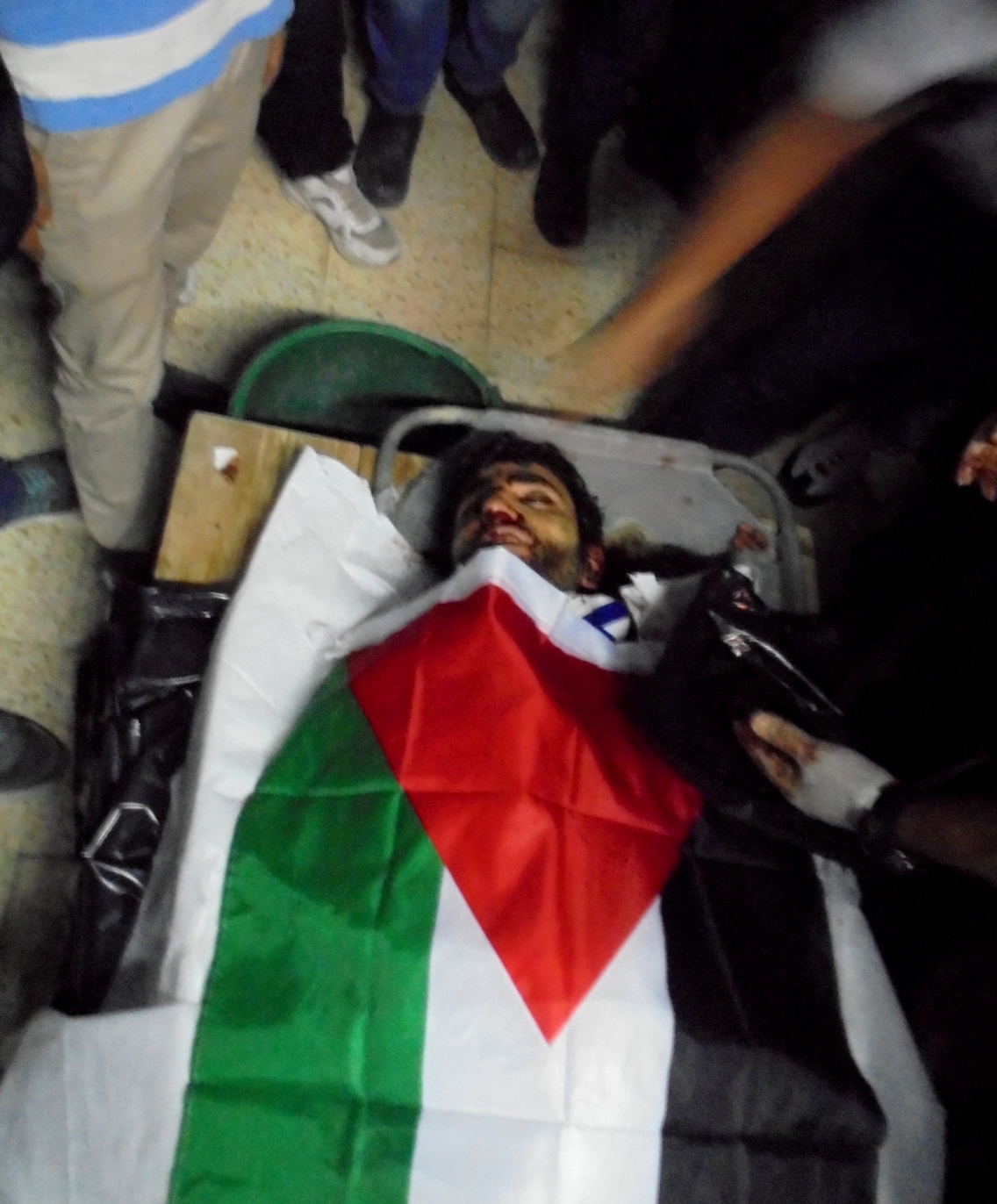Tag: Checkpoint
-
Injured and forced to walk
27th August 2014 | International Solidarity Movement, Khalil team | Hebron, Occupied Palestine It was a warm Saturday night in late August in al-Khalil (Hebron). For the Palestinian children school was starting the next day, and a feeling of anticipation and excitement for a new year of learning floated over the hot Palestinian night. A group of…
-
VIDEO: One month for schoolchildren in Hebron: stun grenades, tear gas, and detentions
5th June 2014 | International Solidarity Movement, Khalil Team | Hebron, Occupied Palestine For children in al-Khalil (Hebron), the journey to school can be filled with fear, fear of Israeli soldiers, of military weapons, detentions, and arrests. The violence is all too real in this city, and it is unfortunately not an uncommon experience for children, some as young…
-
Palestinian murdered by Israeli forces in Huwarra
4th June 2014 | International Solidarity Movement, Nablus team | Huwwara, Occupied Palestine In the late hours of Monday evening, Israeli forces executed 30-year-old, father of two, Alaa’ Mohammed ‘Awadh, at Za’tara checkpoint, in southern Nablus. The Israeli army claimed that a Palestinian gunman was shot dead after he injured an Israeli police officer in the leg. The villagers of…



